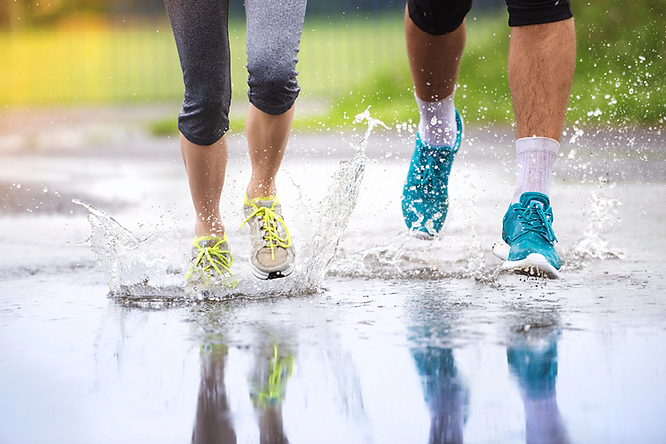10 Monsoon Health Tips Everyone Must Know
Monsoon is well upon us! It relieves us from the scorching heat and is the best time to have a cup of tea sitting on your balcony as you enjoy the rain as well as the petrichor (smell of the soil when the rain pours on it).
The pitter-patter of the rain, however, comes with its own struggles. It brings diseases like flu, malaria and dengue. The humidity in monsoon leads to fungal infections, allergies and skin diseases. So, it is essential to take care of your health to keep yourself away from such infections.

Here are a few tips to keep in mind during the Monsoon season to protect yourself –
1. Consume Probiotics and vegetables

To keep digestive issues at bay during the monsoons, opt for some yogurt, buttermilk or soybeans. Probiotics contain good bacteria that keep the digestive system healthy. They also play a key role in improving the immune system. Avoid eating green leafy vegetables during this season. Switching to vegetables like pumpkin, bitter gourd, and root vegetables is better.
2. Avoid Street Food

The craving for street food is irresistible. But extra precautions should be taken during the monsoon season regarding the choice of food as the Monsoon provides the ideal temperature for bacteria to grow making one prone to serious infections during this season. Most street food vendors keep their food outside, making it more susceptible to contamination. It is most advisable to eat at home and to boil all sources of water.
3. Always Carry an Umbrella/Raincoat

Rainfall during the monsoon season is very unpredictable, and it can rain at any time. One must always carry an umbrella or a raincoat to be well prepared. Even a good waterproof raincoat will give your body complete coverage, saving you from the complete downpour.
4. Increase Intake of Vitamin C

Monsoon season brings a lot of pathogens that affect immunity and makes you susceptible to viruses and bacteria. Vitamin C is considered the best immunity booster. So, one must consume vitamin C-rich foods such as lemon, oranges, tomatoes, etc.
5. Eat in Moderation

Our digestive system tends to slow down in the monsoons making it essential to have nutritious food. Eat in moderation; drink warm beverages adding mint or ginger. When you are not hungry, abstain from eating. It is better to stick to seasonal fruits because non-seasonal ones tend to be infested with worms during the monsoons.
6. Use Powerful insect repellent:

Insects breed rapidly during monsoons which leads to many diseases. Preventive steps should be taken to avoid mosquito larvae breeding in and around homes. Different types of sprays are available in the market to keep mosquitoes away. One can even kill mosquitoes by placing electric traps in their homes. Some home products such as camphor, garlic, mint and lavender oil can help to keep mosquitoes away. Certain disinfectants can be used to clean the floors and prevent insects.
7. Take a bath twice a day

It is a healthy habit in the monsoons to take a bath twice daily. One is when you wake up, and the other is when you are off for the day. Many harmful bacteria get attached to your body due to excessive sweating, which gets washed off when you take a shower. This habit protects you from many diseases.
8. Avoid walking in rain

One must avoid strolling in the rain. Rainy walks make you prone to monsoon infections and fungal infections. If your clothing gets wet in the monsoon rain, change them as soon as possible and dry your body to protect yourself from infections.
9. Drink clean water

During the Monsoon season, there is a lot of humidity in the atmosphere, which leads to excessive loss of water from the body in the form of sweating. So, one must drink a lot of water. However, when away from home, carry your own water bottle as any contaminated water can lead to infection. While taking beverages outside, ensure that only pure water is used.
10. Iron Damp Clothes

Closets generally store bed sheets, linens and clothes. It remains cold and generally, with excessive rain, gets damp due to moisture. It leads to mold. So, it is preferable to iron wet clothes to ensure your clothing doesn’t become a breeding ground for infections.








